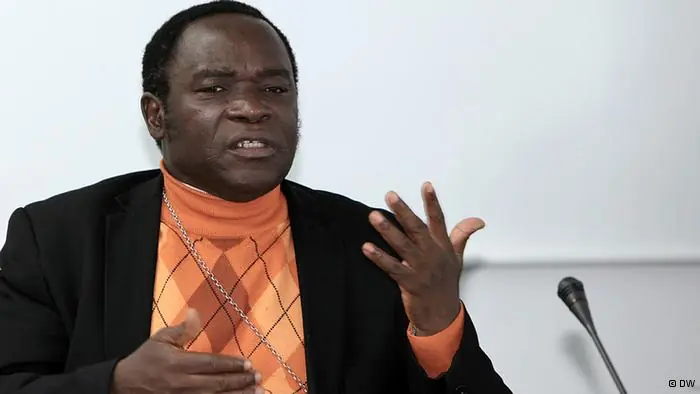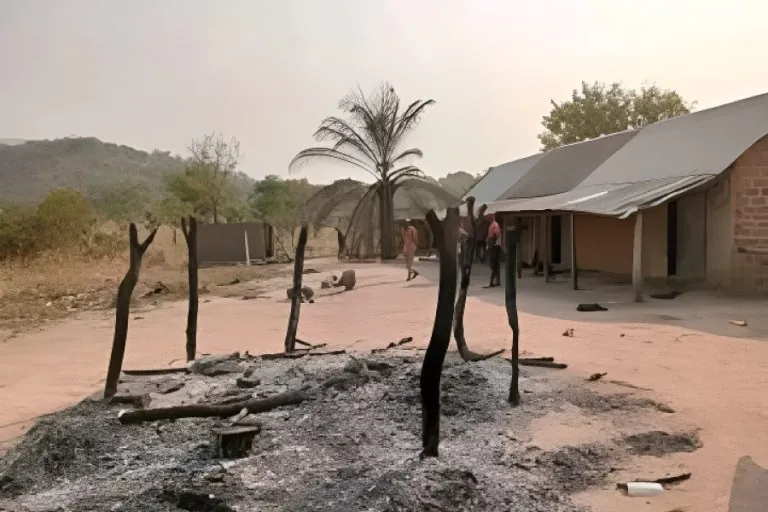What was meant to be a period of peace, prayer, and jubilation during the Islamic Eid al-Adha holiday turned into scenes of terror and bloodshed as armed Islamist militants launched lethal attacks on Christian-dominated villages in the country’s north. The coordinated assaults, which left dozens dead and scores injured, have sparked national outrage and renewed calls for international intervention into the deepening crisis of religiously and ethnically motivated violence in Nigeria.
According to local reports and humanitarian agencies operating in Benue and Plateau States, the militant groups descended upon quiet communities between the late hours of Eid eve and early morning of the celebration.
“They came just as we were returning from evening prayers. We thought it was the sound of a celebration, but it was gunfire,” said Emmanuel Tyowua, a farmer from the afflicted Guma Local Government Area in Benue State.
Villagers described the attacks as “brazen and unprovoked,” with invaders torching homes, looting livestock, and shooting into crowds of fleeing residents. Those unable to escape—many of them women, children, and the elderly—were brutally executed.
Though exact figures remain uncertain due to access challenges, local civil society groups estimate over 70 people were killed during the weekend, with thousands displaced. Villages once buzzing with life now lie eerily silent, overtaken by smoldering ruins and grief.
“Human Sacrifices in Plain Sight”

The silence of major international media on the attacks has triggered widespread condemnation, especially from religious leaders and rights groups. Bishop Matthew Kukah of the Catholic Diocese of Sokoto lamented during a recent sermon:
“What use is all the diplomacy of the world if it cannot stop the murder of innocent children under God’s sky? Nigeria is bleeding, and the world seems to have turned away from our tears.”
Many Nigerians online have described the killings as “unacknowledged human sacrifices”, especially given the timing—occurring during one of Islam’s holiest festivals, which is traditionally associated with a call for peace, compassion, and mercy.
A Deeper, Darker Conflict: The Mineral War Beneath the Soil

While on the surface the spate of attacks appear to stem from ethnic and religious animosity, investigators and analysts suggest a far more dangerous motive is at play: control over Nigeria’s mineral-rich lands.
The North-Central region, where much of the bloodshed has occurred, lies atop valuable deposits of gold, tin, and other rare minerals.
Security experts believe militant groups may be acting as enforcers for illegal mining interests—many of which are backed by powerful financiers both within and outside Nigeria. Villages are being forcibly cleared under the cover of conflict, paving a path for organized exploitation of the land and natural resources.
“This is not just religious violence, it is economic warfare disguised by ideology,” says Fatima Baba, spokesperson for a civil society coalition in Jos. “Whoever controls the land controls the wealth—and that’s what the killing is about.”
Foreign Funding Under Scrutiny
Amid the horror, attention has begun to shift to the sources of funding and arms for these deadly outfits. Investigative journalists and human rights defenders have long warned about the unregulated inflow of funds from extremist networks abroad, often masked as donations to religious causes or humanitarian missions.
Civil society groups are calling on the Economic and Financial Crimes Commission (EFCC) and international anti-terrorism units to trace and block these shadowy funding channels.
There are also growing demands for an independent international probe into the attacks and their political/ecological motivations.
Many are also calling for stronger media coverage beyond Nigerian borders to shine a light on the unfolding humanitarian disaster, and for targeted sanctions on individuals and entities found complicit in funding terrorism and orchestrating displacement for economic gain.
“Silent Genocide” and the Price of Global Indifference
The slow response by both the federal government and global institutions has left survivors feeling abandoned. Churches in Jos, Makurdi, and Kaduna have turned into makeshift shelters, nursing the wounded and housing the newly homeless. The Nigerian Red Cross has issued an emergency appeal for aid, citing shortages of food, medication, and psychological support for traumatized survivors.
Activists warn that without urgent action, religious minorities in heavily contested regions may face a future where they either flee or perish.
Quote of the Day
“When we close our eyes to injustice because it’s far from home, we pave the path for it to one day knock on our own doors.”
— Ngozi Anya, Nigerian human rights lawyer and advocate
As Nigeria faces yet another rude awakening, the burden lies heavy on the government, religious leaders, citizens, and the global body to rise beyond hashtags and symbolic condemnations. This is a test of Nigeria’s soul—and its commitment to justice, equity, and truth.
